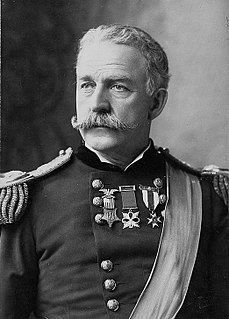A Quote by Robert A. Williams, Jr.
African-Americans were dispossessed of the land by being brought over here in slave ships, whereas Indians were on the land and fought literally wars against Europeans for control of that land. And that history of dispossession, you know, if you look at the treaties, it's very interesting. Everyone thinks that Indians were ripped off in their treaties. If you look at the first round of treaties from about 1800 to the Civil War, tribes secured over 150 million acres. I think it may have been 144 million acres in those treaties. That's a large amount of real estate.
Quote Topics
About
Acres
African
African-American
Against
Amount
Been
Being
Brought
Civil
Civil War
Control
Estate
Europeans
Everyone
First
Fought
History
Indians
Interesting
Know
Land
Large
Literally
Look
May
Million
Off
Over
Real
Real Estate
Ripped
Round
Secured
Ships
Slave
Slave Ships
Think
Thinks
Those
Treaties
Tribes
Very
Very Interesting
War
Wars
Were
Whereas
Related Quotes
The commitment to international agreements is embodied, it's found in the U.S. Constitution. Article Six of the U.S. Constitution provides that treaties of the United States are part of the supreme law of the land along with the constitution itself and laws passed by Congress. Well, the US government certainly has not been acting in recent years as if treaties were part of the supreme law of the land.
Congress passed the 1887 General Allotment Act. And that act ended up dispossessing tribes of 90 million acres. That history of dispossession was also accompanied by a history of forced assimilation whether it was in residential schools, whether it was in dismantling traditional tribal governance structures. And the justifications for that is that you're not as good as us. Our systems are better. Our modes of education. Our ways of owning land, our ways of working have been continually cited to Indians as the reason for these government policies.
During that time period all of our tribes were suffering extremely from poverty and neglect. And the reason I say neglect is because the U.S. Government was neglecting its true responsibilities they agreed to in exchange for our land and resources. What I and others attempted to do, and in essence we did, was bring attention to our sovereign rights, the rights we had retained when the treaties were made.
Many of the situations that we've talked about whether it's the San Carlos, whether it's the Navajo fighting for their land rights or fighting to develop their land to try and provide decent jobs on the reservation. The backdrop to all that, the reason that we have those battles is that history of dispossession. The story isn't over for American-Indians. ... You know, how could any tribal member think about giving away something that means so much to the tribe?
The reason the first three Star Wars movies were so terrific, and the second three sucked so bad, is actually very simple. The first three were about rebels, shooting guns and driving fast, and speaking with American accents. The second three were about politicians, discussing treaties and holding court, and speaking with British accents.
The case of Johnson v. M'Intosh is exactly why Congress can pass legislation as it did with the Rio Tinto land mine deal because Congress took the land from the tribes, ignores their sacred connections to it, their cultural connections and does whatever it wants with it. Congress terminated tribal status for more than 100 tribes. Basically said, you're not a tribe anymore and we're not going to pay attention to the treaties. The Supreme Court has held that when Congress breaches a treaty with an Indian tribe it's not judicially reviewable. It's called a political question.
Historically, and since, 1520, eighteen Treaties have been concluded between the Persian State and its western neighbours regarding its relations therewith including the question of borders. On all occasions, the Persian State chose the opportunity to violate the said Treaties whether by word or deed.
































